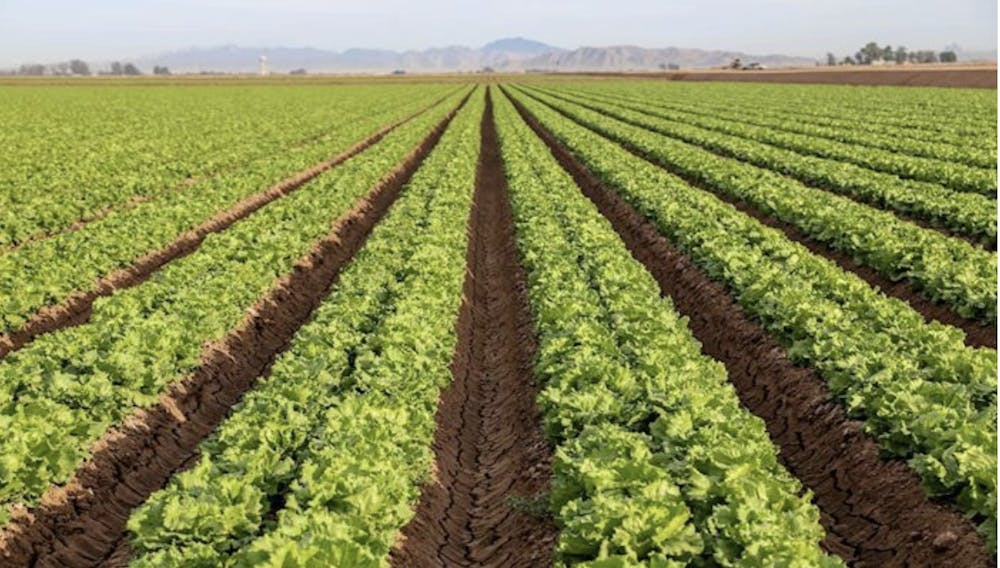PHOENIX — By afternoon, the rows of fresh produce at Shamba Farm have already wilted under the burning Phoenix sun. The owner, Samuel Ogechi, rushes to fight against the relentless heat every day to keep his crops alive. For local business owners like Ogechi, climate change affects their daily operations and threatens their livelihoods.
From water scarcity to extreme heat and poor air quality, the effects of climate change impact every aspect of local businesses in Phoenix, which threatens their operations.
Ogechi expressed concern about Phoenix’s extreme climate and how it pressures local farmers and business owners.
“We have actually lost product due to extreme heat,” Ogechi said. “If you slack a little bit and you don't stay on top of stuff, you can actually lose product from extreme heat.”
The extreme weather conditions in Phoenix not only affect the quality of produce but also the cost of operations.
“Energy costs are much higher in the summer, so that puts a damper on our production
Profitability.” Ogechi said. “So if we could find more affordable ways to produce anything, that would improve dramatically.”
Across Phoenix, other small business owners face a similar struggle as they contend with the growing financial strain of record-breaking heat and unpredictable weather. According to the National Weather Service, Phoenix saw 113 consecutive days at or above 100 F between May and September 2024, making it the longest stretch in the city’s history.
Nancy Allen, Environmental Programs Administrator for the City of Phoenix, explained how climate change is affecting communities in different ways.
“The majority of folks are disproportionately impacted because of various things; where they're located, their socioeconomic status, the nature of their business,” Allen said. “There may be some people who are more impacted right now because of what they do, but they may not be as impacted in 10 years, due to the way things might change.”
Allen added that the city has launched several programs to help both residents and small businesses manage the stress caused by climate change.
“There are multiple programs that are geared to residents and businesses that are in weatherization, building codes and deconstruction," Allen said.
The city also established an urban code that aims to make places more walkable, which benefits small businesses through increased foot traffic.
While government initiatives help set the foundation, many community organizations are stepping in to fill the gap. Nick Shivka, Senior Manager of Sustainability Initiatives at Local First Arizona, aims to support local businesses through various programs and initiatives.
Shivka explained that ongoing water scarcity is forcing many farmers to scale back production. This challenge mirrors what Ogechi experiences at Shamba Farm, where limited access to water and rising costs make it difficult to maintain steady production.
Shivka said that businesses in under-resourced areas often face significant challenges, including the higher utility costs, sometimes as much as “40% more than in wealthier neighborhoods.” He explained that factors such as limited tree coverage and older infrastructure make the areas more expensive to operate in, leaving business owners with fewer resources to work with.
“Consumers should shift just 10% of their spending to local businesses,” Shivka said. “Imagine the impact on the climate alone from avoiding transportation emissions if people would spend a little more time being intentional about their purchasing rather than searching, clicking, and shipping something from thousands of miles away that has no connection to this place?”
Contact:
Nick Shivka
Nancy Allen
Samuel Ogechi

